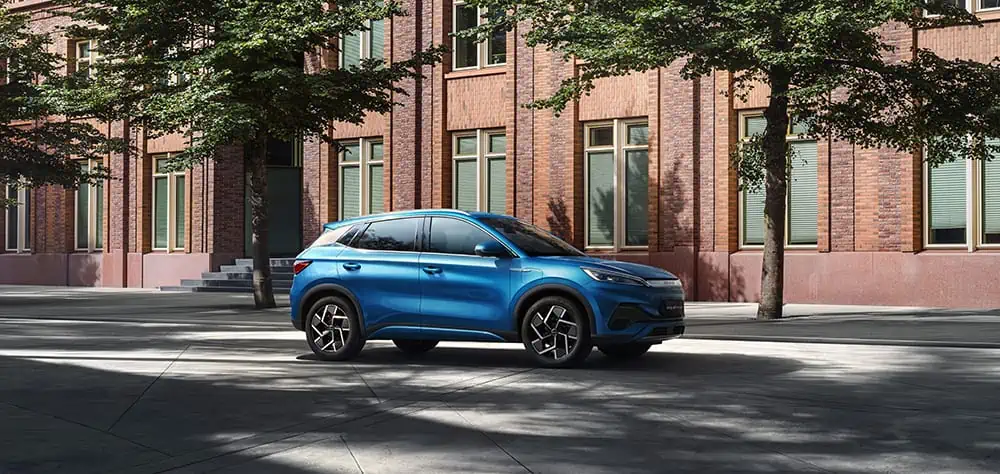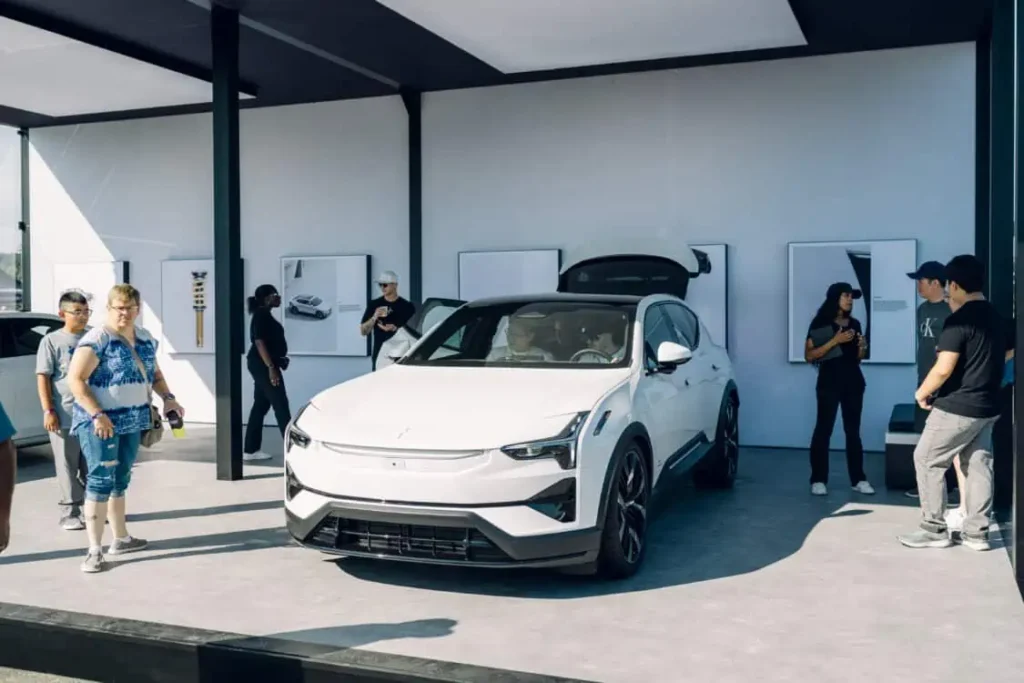When Will China Enter the American EV Market?
Electric automakers are nervous about Chinese electric vehicles (EVs) entering the American market, and for good reason. China is the leading country in the world for both EV adoption and EV production. The Chinese government’s strong support of EVs, along with the country’s significant manufacturing resources, has made the country the global EV leader. China initially had a reputation for poor quality in its EV manufacturing, which has been greatly improved in the last few years.
Chinese EVs in the American market
Chinese EVs have much lower price points than other EVs around the world, making American and European EV makers very worried. Currently, brands from China are prevented from entering the American EV market because of high trade tariffs and other reasons. The tariffs are one of several current sources of political tension between the two countries.
The Top EV companies in China

BYD, short for “Build Your Dreams,” has secured its place as a global leader in the EV industry. BYD delivered an impressive 547,917 passenger vehicles in the first quarter of 2023, including electric and hybrid vehicles. BYD’s commitment to affordable EVs and hybrids, including the Atto 3 model competitively priced at ¥139,800 ($20,000 US) in China and £38,990 ($48,000 US) in Europe, in addition to their commitment to electric buses, has not only solidified its position in the Chinese market but also earned it recognition on the global stage. Other leading companies are Nio, Geely and Xpeng.
China is now the most significant global vehicle exporter
According to the China Association of Automobile Manufacturers, China pulled ahead of Japan as the largest global exporter of automobiles in Q1 2023. CNN reported that according to the China Passenger Car Association, there was a 72% surge in the first 8 months of the year, amounting to 2.3 million vehicles. A quarter of the total were electric vehicles. In August 2023, BYD exported more than 25,000 vehicles.
China is leading EV adoption around the globe
China is the most significant worldwide player when it comes to EV adoption. According to the International Energy Agency (IEA), EVs comprised 29% of all passenger vehicles sold in China in 2022, compared with nearly 8% in the U.S. 10 million EVs sold globally in 2022. According to the International Energy Agency’s Global EV Outlook 2023, sales of EVs in China were 60% of global electric car sales in 2022.
China is the largest producer of EVs
Beginning in 2009, China created generous subsidies and tax credits for EV drivers, as well as EV makers. The Chinese government spent billions supporting the EV market and building charging infrastructure. Recently, estimates showed over 300 Chinese EV manufacturers. Experts believe consolidation will bring that number down to no more than dozens soon.
China is the largest producer of lithium-ion batteries used in EVs
China produces 75% of the world’s lithium-ion batteries, the most common battery type in today’s EVs. China has 85 percent of the global production capacity for anodes, and 70 percent for cathodes of lithium-ion batteries. This local access to batteries makes EV production easier.
Some Chinese EV trojan horses have already entered the U.S., more expected to follow

There are several EV brands owned by Chinese firms that are already available in America. Polestar EVs, produced in China, delivered 2,340 of its Polestar 2 vehicles to U.S. customers in Q1 2023. Polestar was originally a Swedish brand acquired by Volvo. Chinese company Geely is Volvo’s corporate parent company. Vehicles produced in China use export credits to offset the US-Chinese import tariffs. This requirement can limit the amount of vehicles companies can export to the United States.
One example is the 2025 Volvo EX30, an electric subcompact SUV. With a starting price of $34,950, it will significantly undercut the current average cost of a new vehicle in the U.S.
The China-US tariffs and other factors continue to bar China from the American EV market
In 2018 and 2019, the U.S. executed tariffs on imports from China. These tariffs, valued at approximately $370 billion, were imposed following an investigation that revealed that China was illicitly appropriating U.S. intellectual property and pressuring American companies to convey sensitive technology for business operations. The current tariffs range from 7.5% on consumer goods to 25% or more on vehicles, industrial components, semiconductors, and other electronics.
In 2023, the tariffs continue to keep China out of the American EV market for the most part. Additionally, the need to implement U.S. safety regulations has largely not been completed by Chinese companies. There are also the enormous costs of setting up a retail network and service departments to handle warranty, body shop, and mechanical repair work.
China is not eligible for Inflation Reduction Act EV tax credits
Another barrier to Chinese entry into the market is that imported EVs are not eligible for the $4,000-$7,500 federal tax credit, with North American production and other requirements barring imports. The credit is converting to a point-of-sale discount beginning in January 2024. The point-of-sale discount will reimburse the credit to car dealers within 72 hours and is expected to cause a massive spike in EV sales, having positive repercussions for years to come.
Key takeaways and predictions
Most Chinese companies have announced they have no plans to enter the U.S. electric passenger vehicle market at the moment. Experts believe that removing the tariffs on Chinese EVs sold in America would increase competition, drive prices down for consumers, and significantly improve EV adoption. However, both major U.S. political parties continue to support the US-China tariffs currently, and there are no signs of that changing.
The November 2024 elections, especially the presidential race, will be important for the American EV industry, as the Democrats have supported EVs and other clean energy initiatives more than Republicans. EVs have become a complex and divisive political issue, with red states showing the lowest EV adoption numbers. It’s hard to predict what will happen as Chinese EVs continue to dominate the global EV industry, whether they will enter the U.S. market in force or not, and if so, when. Will the tariffs be removed or decreased? Only time will tell.

Electric Vehicle Marketing Consultant, Writer and Editor. Publisher EVinfo.net.
Services